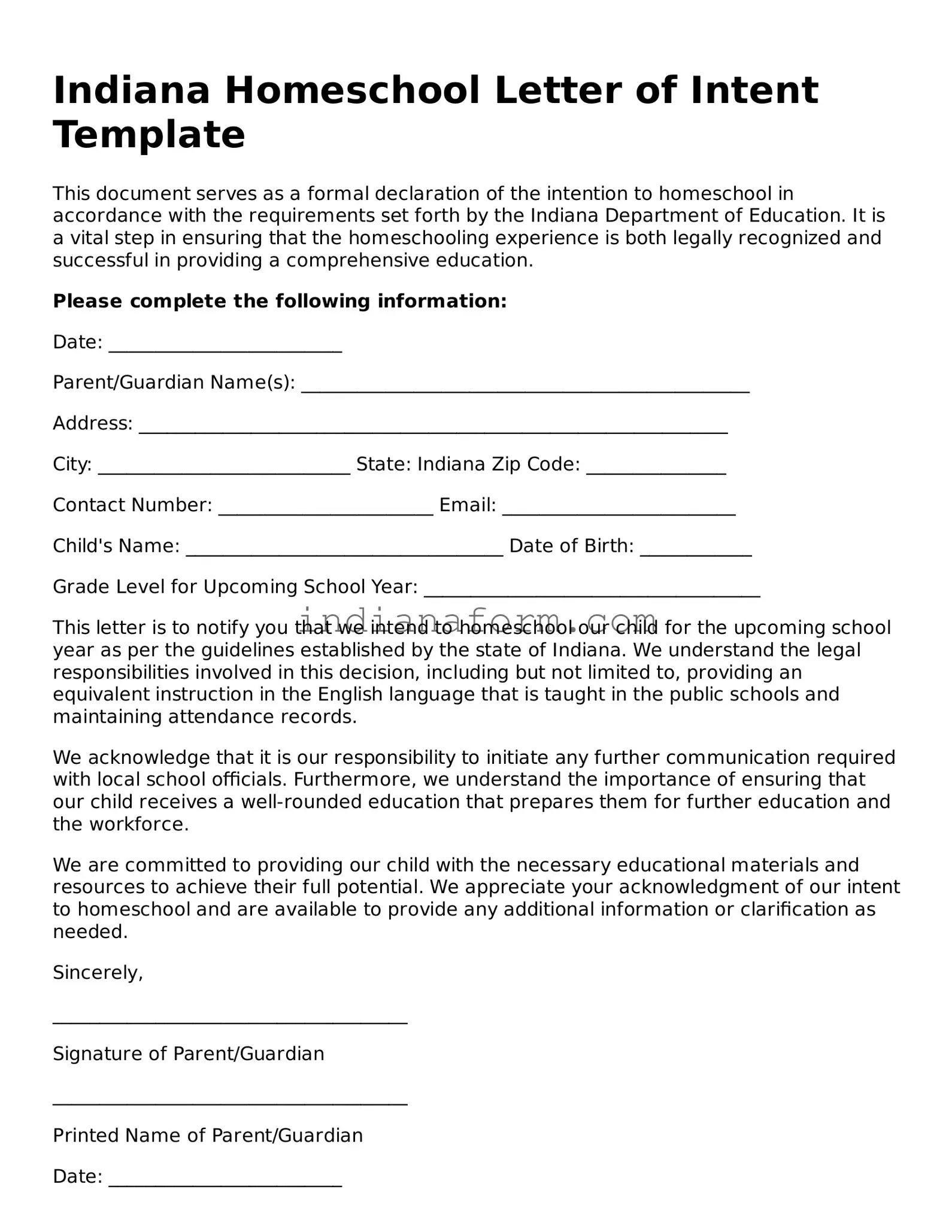Indiana Homeschool Letter of Intent Template
The Indiana Homeschool Letter of Intent form is a crucial document for parents or guardians planning to educate their children at home. It serves as a formal notification to the local school district of their intention to homeschool, ensuring compliance with state educational regulations. This paperwork lays the foundation for a fulfilling and compliant homeschooling experience, providing clarity and legal standing for the educational journey ahead.
Fill Out Your Document Online

Indiana Homeschool Letter of Intent Template
Fill Out Your Document Online

Fill Out Your Document Online
or
⇓ Homeschool Letter of Intent PDF Form
Don’t stop halfway through your form
Edit your Homeschool Letter of Intent online and get it downloaded.